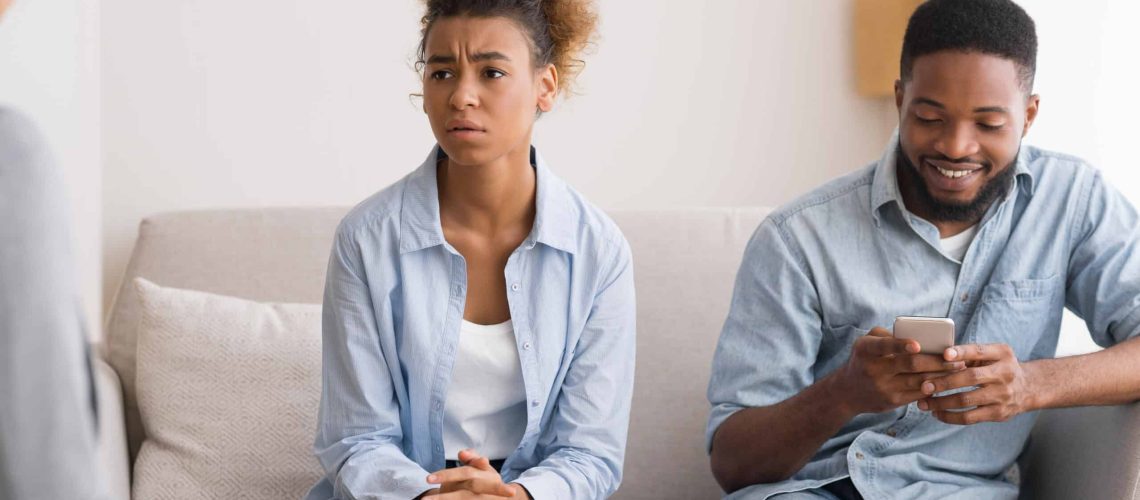You’re probably wondering what Phubbing is. Almost all of us have been “Phubbed” at one point or another. You just might not have heard the term before today.
Surprisingly, though the phrase has only recently begun reaching prevalence, the term dates to a contest held in 2012. The publishers of the Macquarie Dictionary worked with a group of language experts to develop a new term for an emerging trend. They felt this new trend was becoming so prevalent that society needed an entirely new word to fully encapsulate the experience.
And that winning term was Phubbing.
What is Phubbing?
Phubbing is a clever little portmanteau of “phone” and “snubbing.” Pull the two words apart, and it’s pretty easy to guess the definition. Basically, phubbing is the act of snubbing the person you’re supposed to be talking to for your phone.
We’ve all either done it ourselves or been on the receiving end…sometimes even simultaneously. You have a real flesh and blood person sitting across from you at the dinner table. But, instead of being present and talking eye to eye, you stay head down, scrolling through your feed or texting someone else.
Sadly, this issue is becoming a little too common. A study found that 17% of people phub someone at least four times daily. That’s four interactions where they choose to focus on their phone instead of the other person. 32% of people surveyed said they were phubbed 2-3 times every single day!
How Is Phubbing Harming My Relationship?
It’s easy to see how cell phones could be a distraction today. Millions of apps, social media networks, and more are all constantly vying for our limited attention. There’s a real possibility that you’re reading this article on a cell phone or tablet now.
But phubbing is a real threat to our relationships in many ways. One study found that phubbing threatens our four “fundamental needs” of:
- Belonging
- Self-esteem
- Meaningful existence
- Control
It disrupts how we usually communicate and experience other people. Left unchecked over time, this could lead to:
Feeling Less Connected
You might be surprised to learn that they were considered a distraction even before things progressed to where they’re at now. A 2012 study found that merely having a cell phone visible, even if neither party was using it, was enough to make both people feel less connected and present for one another!
Cell phones stop us from being present in the moment. When they’re out, particularly when we’re using them, those around us feel our attention is elsewhere. And, sadly, they’re probably right.
Decrease in Trust and Increase in Jealousy
A 2021 review of the literature on phubbing showed that those on the receiving end feel less satisfied with their social interactions, have less trust for their partner, and are prone to increased jealousy.
A Downward Spiral of Loneliness
Another study found that phubbing can create a self-perpetuating loop or spiral downwards. Basically, one person in the relationship spends too much time on their phone. This makes the other person feel lonely, so they turn to their device, making phubbing more likely for them as well. Both parties begin to feel lonelier, despite their partner being a few feet away.
Relationships were complicated enough before modern technology added its own set of headaches. Now, thanks to the power of viral marketing and predictive algorithms, technology is reshaping our most basic interactions.
Why is Phubbing So Hard to Stop?
Even though most people dislike being phubbed themselves, the practice has become socially acceptable for many. Most people are addicted to their smartphones, and many of us have begun accepting this as a regular occurrence.
While the science behind the why is still being debated, many think that a significant contributor is our “fear of missing out” (FoMO). FoMO drives our need to stay on top of what’s happening around us, causing us to prioritize our phones over the people around us.
Some people’s addictions to their phones are so intense that they are actually less productive when their phones are withheld. However, those same people were more productive if they could set their phone out where they could see it but not interact with it.
Ways You Can Stop Phubbing Up Your Relationship
Breaking the phone addiction is tough. Can you believe a study found that the urge to check social media is more potent than many people’s desire for sex?
But don’t worry. It can be done with some willpower, these helpful techniques, and, in extreme cases, help from a professional counselor.
Make Dinner Time A Phone-Free Zone
Making meal times a phone-free zone is an excellent first step on your path to freedom from phubbing. Meal time is a fantastic time to reconnect, talk, and share updates about your days with each other. Talking around the table used to be a cornerstone of one’s daily life. So, why not reinstate this timeless classic?
Hold a Challenge
Challenge your partner to a phone-free marathon. The first person to break needs to do something the other person wants. This way, you both have a little extra incentive to keep the phones tucked away.
Leave Your Phone Behind During Hobbies
We all have things we do during the day that probably don’t need our phones. Maybe you have daily gym time or a regular group hangout. Make these events distraction-free zones and really focus on getting the most from your pastime.
Try To Be Present
We’re not here to scold you. Phones are addictive, and some truly brilliant minds have developed algorithms designed to capture our attention. But too much time focused on your phone and not your partner can lead to long-term relationship damage.
Phubbing is a relatively new phenomenon. But that means there’s hope. It means we learned this behavior and can also unlearn it!
You don’t want your partner to feel isolated or alone, do you? They’re your special someone, and you want them to feel loved and listened to. So, try and put down that phone at critical moments to listen and talk with your partner.
If you feel like you’re spiraling into loneliness because of your partner’s phubbing, please reach out to a counsellor. They can help you talk to your partner in a productive way that will help them feel motivated to change without judgment.
Maha Elias is a Registered Clinical Counsellor (RCC), Canadian Certified Counsellor (CCC), Comprehensive Family Mediator (FMC), and sexual health and trauma-informed marriage counselling and couples therapist with a counselling and couples therapy private practice in Victoria, British Columbia.


